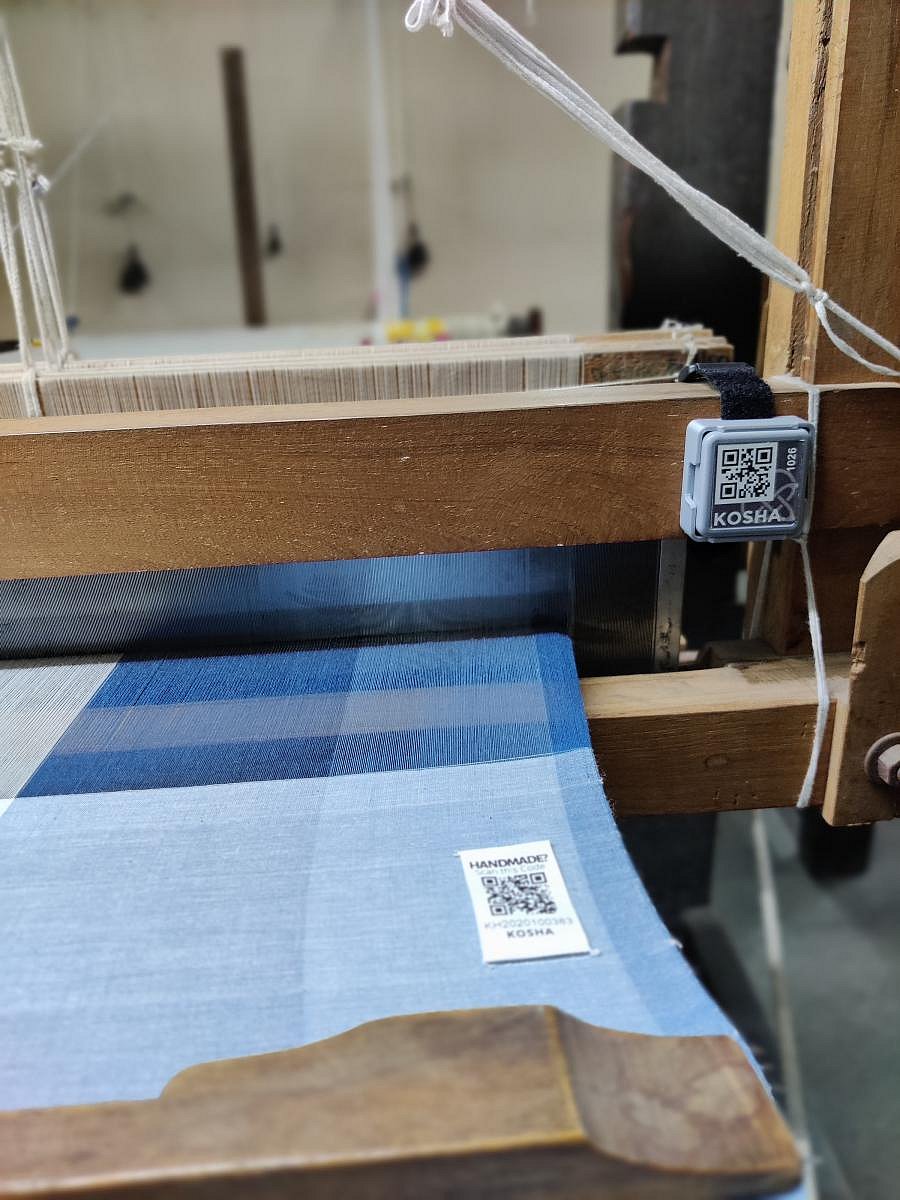
A startup in Bengaluru has developed an artificial intelligence-based method to authenticate handlooms.
Recognised by Startup Karnataka and incubated by Deshpande Startups, Kosha won a Startup Karnataka Elevate Awards in 2019-20. On Monday, it announced an innovative way to certify fabrics created by hand.
Handloom makers can now get Kosha certification to help them identify genuine products, and guard against imitations.
Vijaya Krishnappa, co-founder of Kosha, was a business consultant when the government asked him to help develop the economy of a weaving cluster in Banaras.
“That is when I truly had an exposure to handlooms and the reality was hard-hitting. I witnessed weavers who produced saris worth Rs 20,000 to 30,000 stay in huts without even their basic needs being met,” he says.
Market research showed that buyers were picking up machine-produced products from China that were slightly cheaper.
“Anyone can sell a product saying it is handmade even when it is not and no one can make out the difference,” he says.
The customer just did not know what was hand-made and what was machine-made.
“Imitation products are driving genuine products out of the market and as a result, skilled artisans are migrating to better-paying, low-skill jobs such as construction work, and auto driving,” he adds.
Kosha is using technology to ensure traceability for handloom products. The innovation leverages the power of Internet of Things (IoT), with a cookie-sized, sensor-activated device being fixed on the handloom. It analyses the movement of the loom to make out whether it is a handloom or a powerloom.
Every product gets a tamper-proof label stitched in during weaving, and a unique QR code that includes artisan information and location, making it possible to trace the products’ route from weaver to customer. “This label can only be stitched while manufacturing, so if someone tries to counterfeit our label we will know immediately,” he says.
The QR code on the product needs to be scanned by a phone app to extract information. When scanned, it also talks to the device on the loom.
The technology not only amplifies the weaver’s story but also helps manage the supply chain better. Now, even large-chain retailers can buy handmade products without fear, and trace their origins, Vijaya says.
Post-production solution
Kosha has also developed another technology to authenticate fabric with the help of scanning. A device analyses the variations in fabric texture and determines whether it is genuine or an imitation. While this technology is ready for cotton, a similar product for silk, wool and other fibres is under development.
“We are largely working with retailers and brands. Since they have their own ways of sourcing, we are giving them the technology along with the training manual. We are waiting for better funding before engaging with the weavers directly,” Vijaya Krishnappa says. The device is now priced at Rs 3,500, and can be bought at Kosha, Sahakarnagar.
For details, call 80414 97000.
How it works
- Sensor device fixed on handloom
- Tamper-proof label stitched into product
- Each product gets a QR code
- App on phone can trace origin and weaver details
